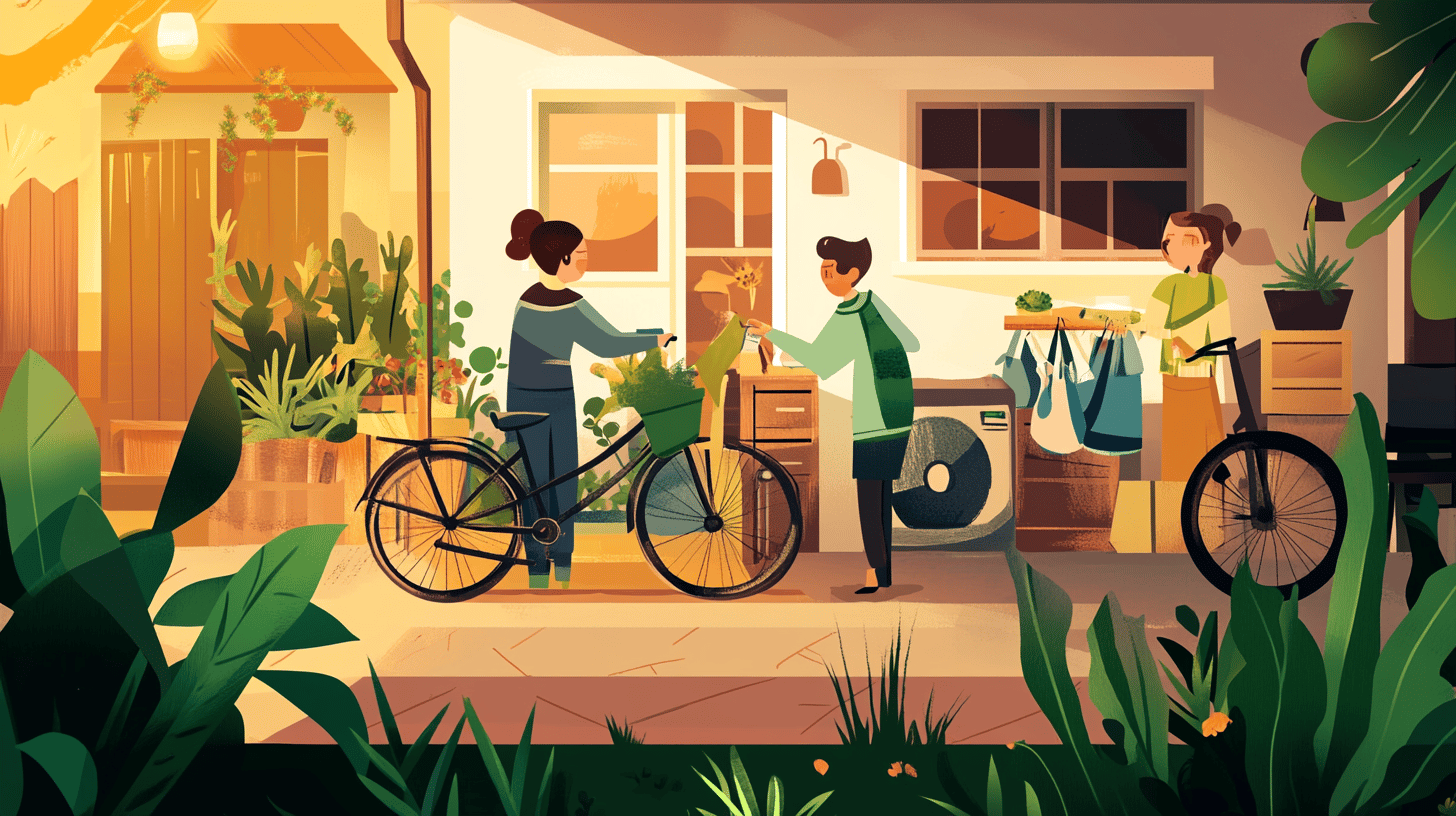Nowadays, the need to adopt a sustainable lifestyle is more urgent than ever. With climate change and increasing environmental degradation, each of us must consider how our small actions can contribute to a greener future. In this article, we will present several practical strategies so that you can incorporate sustainability into your daily life without major sacrifices, but rather with a lot of learning and satisfaction.
Why is Sustainability Important?
Before we get into the tips, it’s important to reflect on the importance of sustainability. At a basic level, sustainability seeks to meet the needs of the present without compromising the ability of future generations to meet their own needs. This translates into three main pillars: environmental, social and economic.
The actions we take every day in our homes, communities and at work can have a profound impact on the environment. By making conscious changes, we can reduce our ecological footprint and promote a healthier, more balanced world.
Saving Water in Everyday Life
One of the most precious resources we have is water. Unfortunately, it is also a resource that is becoming increasingly scarce due to waste and contamination. Here are some simple practices to save water:
– Repair leaks: Even a small drip can result in significant waste. Check faucets, drains, and hoses regularly to identify and fix leaks.
– Use a bucket when bathing: When taking a shower, use a bucket to collect the cold water that comes out while you wait for the water to heat up. This water can be used to water plants or even to flush the toilet.
– Limit water use in gardening: Water plants in the morning or evening to minimize evaporation. You may also want to consider installing a drip irrigation system, which is more efficient.
Conscious Consumption: Less is More
Excessive consumption of products has a profound impact on the health of our planet. To become more conscious consumers, try:
– Buy products in bulk: This reduces the amount of packaging that ends up in the trash. Many stores now offer bulk food options, such as grains, cereals, and spices.
– Donate unused clothing: Instead of throwing away clothes you no longer wear, consider donating them. Not only does this reduce waste, but it could also benefit someone in real need.
– Practice “slow fashion”: Buying quality clothing that is made to last, rather than opting for fast fashion, helps to reduce the fashion industry's impact on the environment.
Alternative Transport
Transportation is one of the largest sources of greenhouse gas emissions. Here are some ways to avoid pollution:
– Walk or bike: Whenever possible, choose to walk or cycle. Not only will you reduce your carbon emissions, but you will also benefit from physical activity.
– Carpooling and public transport: Carpool with friends or collect from friends for easy transportation, and use public transportation whenever possible.
– Consider electric cars: If you have the possibility to invest in a vehicle, opt for an electric or hybrid car. Although they may have a higher initial cost, they generate less pollutants and can have a lower operating cost in the long term.
Conscious Use of Energy
Reducing your energy consumption is not only good for the planet, but it can also result in savings on your electricity bill. Here are some tips:
– Replace incandescent bulbs with LED: LED bulbs consume less energy and last much longer.
– Unplug appliances when not in use: Even in standby mode, appliances consume energy. Unplugging not only helps protect the planet, it can also reduce your energy bill.
– Take advantage of natural light: Open curtains during the day and use natural light instead of lamps whenever possible.
Recycling and Reuse Practices
Recycling and reusing are two of the most impactful things you can do to help the environment. Here are some tips:
– Be a responsible consumer: Read labels and understand how to dispose of products correctly. Whether it’s paper, plastic, glass or metal, recycling is always a good option.
– Creativity in reuse: Find new uses for old objects. For example, glass jars can be used as food containers or office organizers.
– Participate in composting projects: If possible, start composting at home. Using food scraps as fertilizer not only reduces waste, but also improves soil quality.
Promoting Sustainability in the Community
Change doesn’t have to happen just in your home. Consider how you can promote sustainability in your community:
– Get involved in local initiatives: Participate in beach, park or forest cleanups. The more people involved, the greater the impact.
– Educate others: Share what you’ve learned about sustainability with friends and family, encouraging them to make changes in their own lives.
– Support local and sustainable businesses: By buying from companies that prioritize sustainability, you contribute to a more responsible market and help to foster the local economy.
Conclusion
Making sustainable changes in our lives doesn’t have to be difficult or onerous. With small actions in our daily lives, we can make a huge difference for our planet. By incorporating these practical tips into your daily life, you’ll not only help preserve the environment, but you’ll also inspire others to follow suit. Share your experiences and tips with friends and family and together build a greener, healthier future. Don’t forget to comment below with your own sustainable practices or any ideas you’d like to add!



